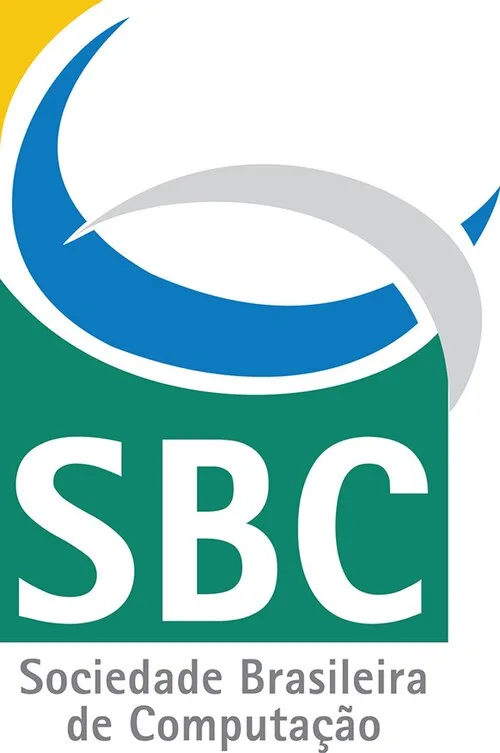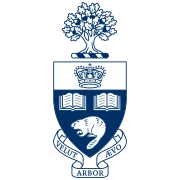About Me
Computer Scientist trained at IME‑USP and enriched by academic work at the University of Toronto, with a foundation in mathematics and a focus on parallel & distributed systems. I bridge theory and engineering to build scalable, reliable, and performance‑aware software—especially where scheduling, concurrency, memory hierarchy, and GPU acceleration intersect. Passionate about reproducible benchmarking and turning principled models into practical, measurable systems.
Experience
7+ years applying computer science fundamentals to real systems.
Focus Areas
- Parallel & Distributed Systems
- Performance Engineering
- Scalability & Reliability
- Compilers / Program Analysis
- GPU Acceleration
Core Values
- M.Sc. Computer Science (2025) – Focus on scalable parallel processing & performance modeling (USP).
- B.Sc. Computer Science (2019) – Core CS theory, operating systems, distributed systems (USP / IME‑USP).
- Academic Term – University of Toronto (2024) – Parallel computing, distributed systems, compiler design.
- Undergraduate Research Distinction – Memory hierarchy microbenchmarks informing later scheduling heuristics.
- Conference Publications – ERAD-SP 2024 & WSCAD 2021.
See full timeline for detailed milestones in education, research, and publications.
Long before I wrote my first program, I was captivated by mathematics—patterns in numbers, the elegance of proofs, and the sense that rigorous structure could unlock entire worlds of possibility. That early curiosity naturally evolved into an interest in computation: if mathematics provided the language of abstraction, computing became the instrument to animate those abstractions at scale.
I formalized that intuition while studying at the Institute of Mathematics and Statistics (IME‑USP), where the boundary between pure theory and practical systems felt deliberately porous. Courses in algorithms, data structures, compilers, and numerical methods reinforced a conviction that performance is not just an optimization phase—it is a design mindset. I became fascinated with the question: how do we transform a mathematically clean model into a system that remains efficient, predictable, and reliable under real workloads?
I hold graduate credentials from the University of São Paulo (USP) and completed an academic term at the University of Toronto focused on parallel computing, distributed systems, and advanced compiler design—strengthening a binational perspective on systems performance research and engineering rigor.
That question led me deep into parallel and distributed computing. I explore scheduling, load balancing, concurrency control, memory hierarchies, and heterogeneous acceleration (especially GPUs) to push throughput and scalability without sacrificing determinism or correctness. I am particularly interested in how theoretical limits (Amdahl, Gustafson, roofline models) map onto practical engineering trade‑offs in modern architectures.
Professionally and academically, I focus on building and evaluating systems that behave robustly under contention, failure, and growth. I value reproducibility: benchmarks should be defendable, artifacts should be inspectable, and performance claims should survive scrutiny. This emphasis on measurable truth ties back to the precision I admired in mathematics—it keeps engineering honest.
Beyond the core of systems performance, I enjoy exploring compilers and program analysis as enabling technologies: better intermediate representations, static analysis, and transformation pipelines widen the space of feasible optimizations. The interplay between symbolic reasoning and low‑level mechanics remains a constant source of motivation.
Today, my work sits at the intersection of theory, tooling, and execution: taking principled models, embedding them in real systems, measuring their behavior, and iterating. It is an ongoing narrative—rooted in early mathematical curiosity—driven by a desire to make complex computation more transparent, efficient, and trustworthy.
The University of Toronto is a leading global public research university. My academic term there broadened my perspective on parallel computing, distributed systems, and advanced compiler design—complementing and extending the systems foundations developed at IME‑USP.
- Official site: utoronto.ca
- Computer Science Department: web.cs.toronto.edu
The University of São Paulo (USP) is a leading public research university in Latin America. I studied at the Institute of Mathematics and Statistics (IME‑USP), a renowned center for mathematics, statistics, and computer science.
- Official site: usp.br
- Institute of Mathematics and Statistics (IME‑USP): ime.usp.br
IME‑USP is a renowned institute at USP spanning mathematics, statistics, and computer science. It provided the theoretical and practical foundations of my CS formation.
- Official site: ime.usp.br
The Sociedade Brasileira de Computação (SBC) is Brazil’s leading professional association for computer science and computing education. It promotes research, education, and technology dissemination through conferences, journals, and community initiatives across the country.
- Official site: sbc.org.br
Certifications
Filter and explore professional and foundational credentials.
- Verify
AWS Certified Cloud Practitioner
Amazon Web Services
Foundational Cloud Fundamentals 2024-06Global infrastructure, shared responsibility, pricing, cloud value proposition.
cloudawsarchitecturegovernance Cloud ConceptsSecurityPricingShared Responsibility - Verify
AWS Certified Developer – Associate
Amazon Web Services
Associate Application Development 2025-02Designing and deploying cloud-native apps: IAM auth, serverless patterns, event orchestration.
cloudawsdeveloperserverless ServerlessEvent-DrivenIAMDeployment - Verify
Microsoft Certified: Azure Fundamentals (AZ-900)
Microsoft
Foundational Azure Platform Core 2024-11Core services, governance model, identity/security, pricing & lifecycle.
cloudazuregovernancecost Core ServicesSecurityGovernanceCost Management - Verify
IELTS Academic
British Council / IDP
Language Academic English Proficiency 2023-09 →2025-09English proficiency across four modalities (academic format).
languageenglishcommunication ListeningReadingWritingSpeaking
Affiliations & Community
Organizations and institutions that shaped my academic path and professional network.

Sociedade Brasileira de Computação
Member
Brazilian Computer Society promoting research, education, and technology dissemination.
SBC Visit
Instituto de Matemática e Estatística – USP
Alumnus
Renowned institute at USP for mathematics, statistics, and computer science.
IME‑USP Visit
Fundação Getulio Vargas
Postgraduate (Continuing Education)
Brazilian higher education institution and think tank known for public policy and management.
FGV Visit
University of Toronto
Professional / Research Community Engagement
Top-ranked Canadian research university with strong programs in CS and engineering.
U of T Visit

